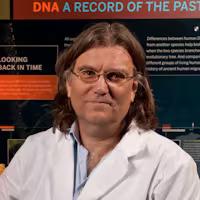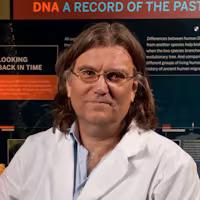Learn to teach genetics and its societal impact, exploring ethical issues in cloning, genetic enhancement, and GMOs.
Learn to teach genetics and its societal impact, exploring ethical issues in cloning, genetic enhancement, and GMOs.
This course, designed for educators, explores the intersection of genetics and society, focusing on the ethical implications of genetic technologies. Led by experts from the American Museum of Natural History, it covers topics such as cloning, genetic enhancement, and genetically modified organisms. Participants will gain knowledge about recent advances in genetics and genomics, and learn how to integrate ethical discussions about these topics into their classrooms. The course emphasizes the use of ethical issues to spark student interest and uncover misconceptions. It also aligns with the Next Generation Science Standards, providing educators with tools to engage students in critical thinking about the societal impacts of genetic research and applications.
4.6
(158 ratings)
17,600 already enrolled
Instructors:
English
Tiếng Việt
What you'll learn
Understand the history and recent developments in genetics and genomics
Explain ethical issues surrounding genetic technologies like cloning and genetic enhancement
Apply the Next Generation Science Standards to teach genetics and ethics
Develop strategies to engage students in critical thinking about genetic technologies
Analyze the societal implications of genomics in medicine and agriculture
Design classroom activities that explore the ethics of modern genetics
Skills you'll gain
This course includes:
2.3 Hours PreRecorded video
4 assignments
Access on Mobile, Tablet, Desktop
Batch access
Shareable certificate
Closed caption
Get a Completion Certificate
Share your certificate with prospective employers and your professional network on LinkedIn.
Created by
Provided by

Top companies offer this course to their employees
Top companies provide this course to enhance their employees' skills, ensuring they excel in handling complex projects and drive organizational success.





There are 4 modules in this course
This course provides educators with a comprehensive overview of modern genetics and its societal implications, emphasizing the ethical considerations that arise from genetic technologies. Participants will explore the history of genetics from Mendel to the 1000 Genomes Project, and delve into cutting-edge topics such as DNA fingerprinting, cloning, and genomics in medicine. The curriculum covers practical applications of genetics in areas like personalized medicine and agriculture, while also addressing the ethical challenges these advancements pose. Throughout the course, educators will learn strategies for integrating these complex topics into their classrooms, aligning with the Next Generation Science Standards. By examining issues like genetic enhancement, ownership of genetic information, and genetically modified organisms, participants will be equipped to foster critical thinking and ethical discussions among their students about the role of genetics in society.
Introduction and From Mendel to 1000 Genomes
Module 1 · 1 Hours to complete
DNA Fingerprinting, Cloning, and the Future
Module 2 · 2 Hours to complete
Genomics in Medicine
Module 3 · 1 Hours to complete
Genomes, Agriculture, and Society
Module 4 · 1 Hours to complete
Fee Structure
Payment options
Financial Aid
Instructors
Assistant Director, Curriculum and Instruction for Online Teacher Education Programs; Faculty, Master of Arts in Teaching, Richard Gilder Graduate School
Dr. David Randle joined the American Museum of Natural History’s Education Department after a 15-year career as a science teacher in the New York City public schools. He is currently the Assistant Director of Curriculum and Instruction and works on programs for teachers though Seminars on Science, the Museum’s online graduate level professional development program, and in face-to-face programs through the Museum’s Gottesman Center for Science Teaching and Learning.
Curator
Dr. DeSalle works in molecular systematics, microbial evolution, and genomics. His current research concerns the development of bioinformatic tools to handle large-scale genomics problems using phylogenetic systematic approaches. Dr. DeSalle has worked closely with colleagues from Cold Spring Harbor Labs, New York University, and the New York Botanical Garden on seed plant genomics and development of tools to establish gene family membership on a genome- wide scale. His group also focuses on microbial genomics, taxonomy, and systematics. In particular, they approach tree-of-life questions concerning microbial life using whole genome information. He also dabbles in Drosophila systematics.
Testimonials
Testimonials and success stories are a testament to the quality of this program and its impact on your career and learning journey. Be the first to help others make an informed decision by sharing your review of the course.
Frequently asked questions
Below are some of the most commonly asked questions about this course. We aim to provide clear and concise answers to help you better understand the course content, structure, and any other relevant information. If you have any additional questions or if your question is not listed here, please don't hesitate to reach out to our support team for further assistance.





